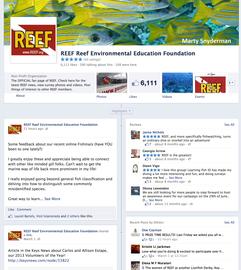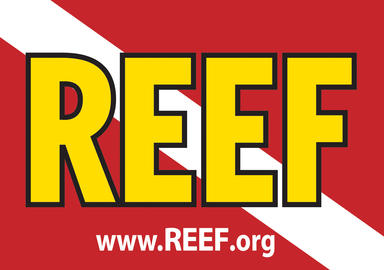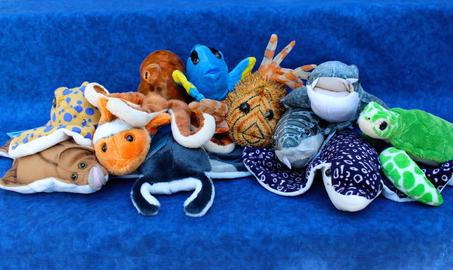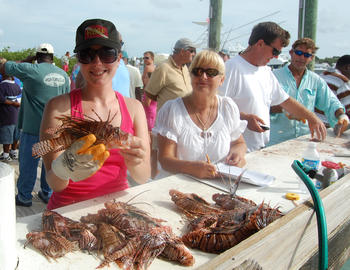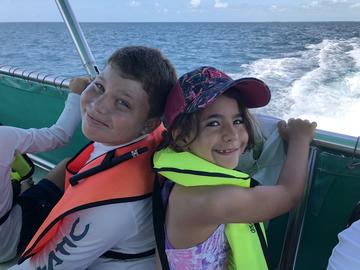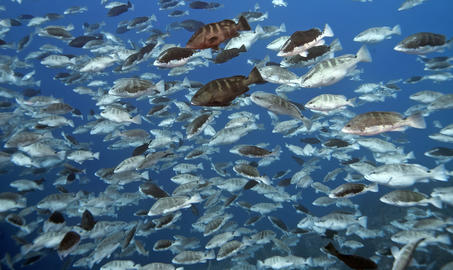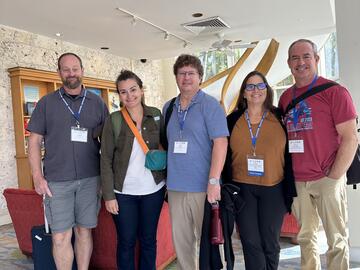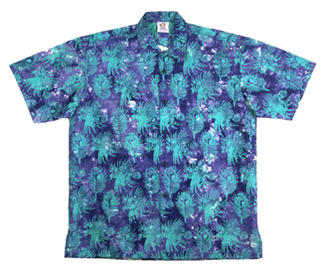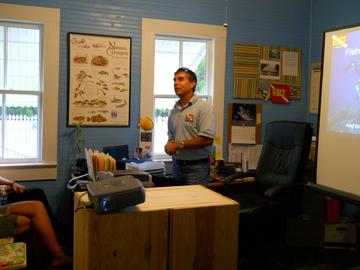Want to get the latest news and updates from REEF? Then be sure to check out the REEF Facebook Page. You don't have to have a Facebook account to view the page, anyone can look at the content. If you do have a Facebook profile, be sure to "like" us so that all of the latest information about REEF's programs and events, our marine conservation work, and exclusive content and stories will go straight to your feed. It's also a great place for our members to post pictures, fish stories, and whatever is on their mind.
Have you registered for REEF Fest 2015 yet? It’s not too late! Join REEF, September 24th-27th, for a celebration of marine conservation success in the Florida Keys!
REEF Conservation Creatures are iconic marine species found throughout REEF’s nine Volunteer Fish Survey Project regions. From the Tropical Western Atlantic (TWA) to the Central Indo-Pacific (CIP), these marine creatures highlight the diversity of ocean ecosystems and encourage understanding and respect for marine life. Each plush comes with a collectable, laminated Conservation Card that provides information about the animal’s habitat, characteristics, potential threats, and global distribution in REEF's Survey Project regions.
Our Invasive Lionfish Research Program is keeping busy getting ready for the spring and summer. In addition to the tagging research in the USVI also reported in this month's E-News, we are also gearing up for a busy Lionfish Derby season. We have six derbies planned in Florida for REEF’s 2018 Lionfish Derby Series presented by Whole Foods Market®. These competitions encourage teams to collect and remove as many lionfish as possible. They are important education and outreach events, and have been shown to be quite effective in lowering local lionfish populations.
It was a busy summer for REEF’s Explorers Education Program, between the Ocean Explorers Summer Camp and the “Nature Days” program with the Florida Keys Children’s Shelter. Throughout the summer, 80 children joined REEF to learn about marine conservation and environmental science in a fun, outdoor setting. Thank you to John Pennekamp Coral Reef State Park, Coral Reef Park Company, Florida Keys Wild Bird Rehabilitation Center, Island Dolphin Care, and the Everglades Outpost who made these programs possible.
Last month, the Grouper Moon Project - a highly successful conservation science collaboration between REEF and the Cayman Islands Department of Environment - wrapped up its 18th year of work in Little Cayman. Because all of the field work takes place during a few weeks around the winter full moons when the Nassau Grouper aggregate to spawn, the team prepares all year to ensure success for the big event. As we reported in last month’s e-News, because of this year's moon calendar, we sent research teams to Little Cayman in both January and February.
Last month, a team of scientists represented REEF at the 76th annual Gulf and Caribbean Fisheries Institute (GCFI) conference, held in The Bahamas. REEF programs and data were represented by REEF Co-Executive Director, Dr. Christy Pattengill-Semmens, and Conservation Science Associate, Lex Bryant, as well as our partners from Scripps Institute of Oceanography (Dr. Brice Semmens) and Oregon State University (Dr. Scott Heppell).
In April 2009, REEF started a monthly seminar series to give back to the community that has housed and supported REEF since our inception. REEF Fish & Friends gathers snorkelers, divers, and armchair naturalists at REEF HQ in Key Largo to learn more about fish and have some fun. The July seminar for REEF, Fish & Friends was all about the Great Annual Fish Count (GAFC).
The study, conducted by Dr. Stephanie Green (OSU/REEF), Lad Akins (REEF), and others, confirms for the first time that controlling lionfish populations in the western Atlantic Ocean can pave the way for a recovery of native fish. Even if it's one speared fish at a time, data are showing that removals can be effective. And not every lionfish need be removed…the research findings document that reducing lionfish numbers by specified amounts will allow a rapid recovery of native fish biomass.

